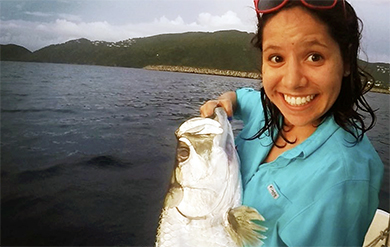
Seventeen University of the Virgin Islands students earned Master of Marine and Environmental Science (MMES) degrees at UVI’s May 17, Commencement Ceremony on the St. Thomas Campus.
This is an exciting time for the University’s Center for Marine and Environmental Studies (CMES) at UVI. The University is celebrating this success as a historic win considering that there have only been 50 graduates from the program over the last ten years.
“We are extremely proud of the students, and the faculty, for this achievement,” said Dr. Camille McKayle, provost. “The fact that so many [students] finished in this challenging year is a testament to the tenacity and perseverance of faculty and students. This will be a model for many classes to come.”
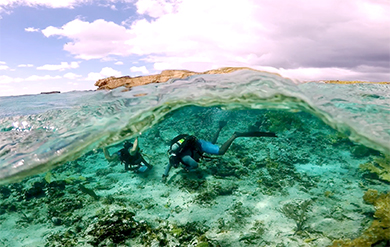
“For us to see 17 [students] finish in a year after such devastation is remarkable,” said Dr. Kim Waddell, director of the Virgin Islands Established Program to Stimulate Competitive Research (VI-EPSCoR). “This accomplishment speaks to the perseverance of the MMES and CSM faculty who guided these new scientists towards completing their degree requirements while working without offices and lab space.”
Each MMES graduate worked on a thesis with faculty from UVI’s College of Science and Mathematics and Center for Marine and Environmental Studies, and many have published in academic journals.
Like most of the other Class of 2018 graduates, the MMES students exhibited resilience and determination during the aftermath of the storms by researching and volunteering to assist with the territory’s recovery.
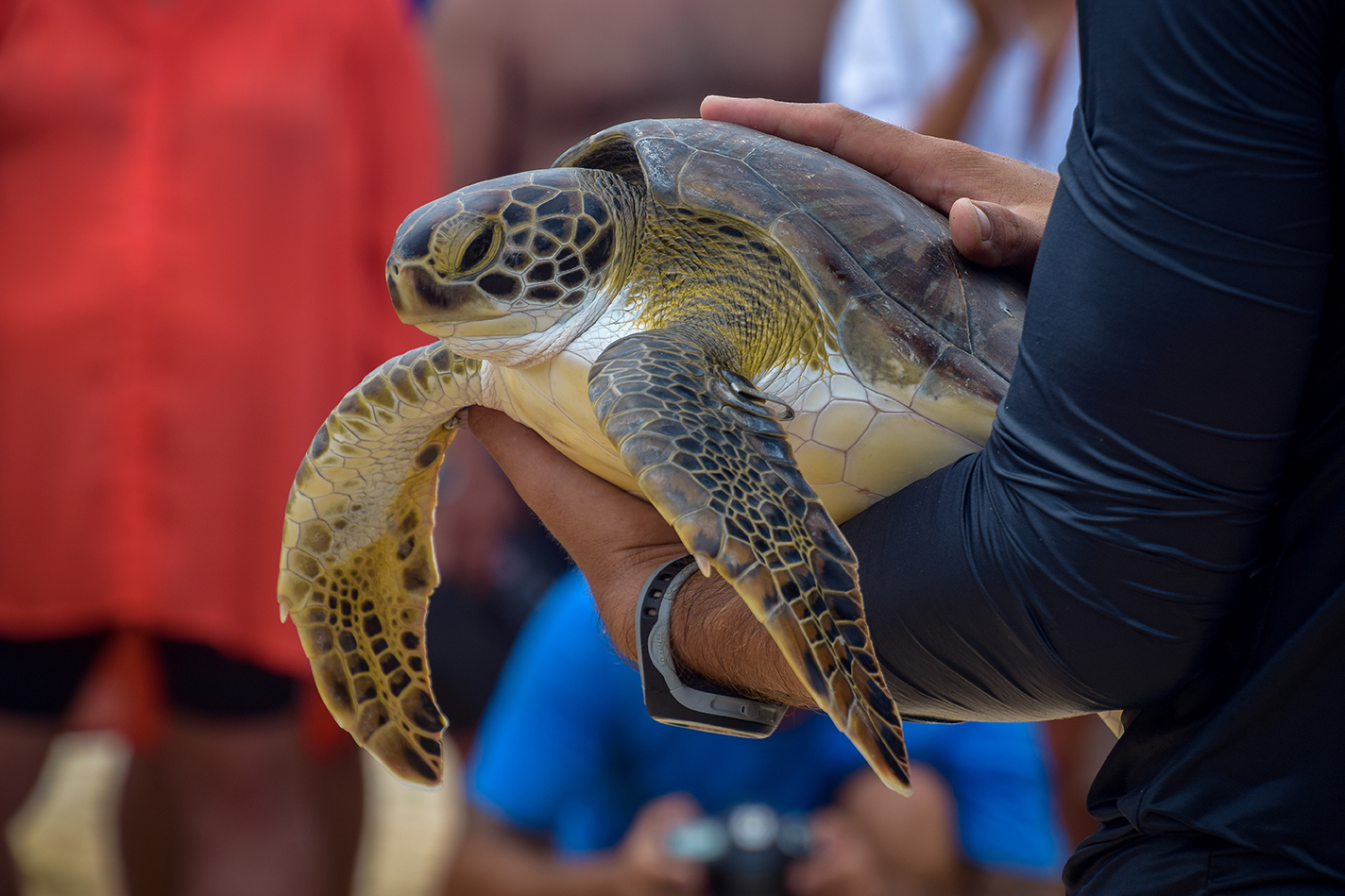
“The UVI Class of 2018 has endured many challenges over the past nine months,” said Mitchell Neaves, vice president of Institutional Advancement. “As these graduates seek new challenges and research opportunities, we are confident their experience at UVI prepared them for any challenge they may encounter in the future. These scholars are not just graduates of our Marine Science program, they are our Ambassadors of Excellence.”
The 2018 MMES graduates’ research will help support the work of marine researchers and environmental decision makers. Their research findings are particularly important as scientists work to understand the effects of a changing environment on these important marine species. Climate change and environmental disruptions in the form of marine debris, watershed runoff, and coral diseases, are areas of focus for the territory.
“As for the graduating students, kudos to them as well and I’m particularly excited to see such relevant research emerge from their theses that can help inform territorial resource managers and scientists alike,” said Dr. Waddell.
Tanya Ramsayer, 2018 MMES graduate describes the program as multi-faceted and one-of-a-kind, she says she is delighted she chose UVI.
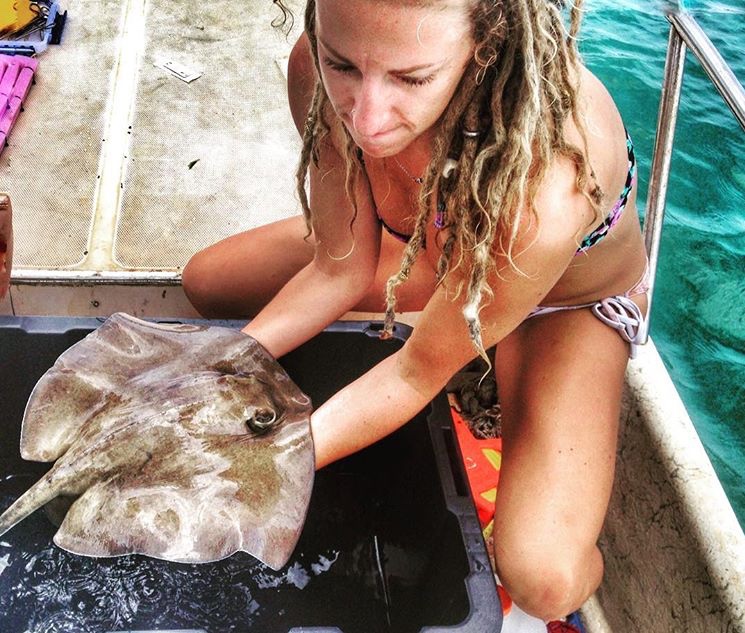
"My experience at UVI has been educational, challenging and exciting. I am so grateful for the opportunity to research beautiful coral reefs, gain hands-on experience and make life-long friendships while in the MMES program at UVI…I encourage others to apply so they can experience it also," said Ramsayer.
The graduates researched various topics; however, one consistent theme of the work done by these students is their interest in studying the relationship of marine organisms with their environment such as their habitat and food preferences.
To illustrate the range and complexity of the student's research topics and its relevance to the Territory, their abstracts are listed below. It is notable that much of the work relies on VI-EPSCoR-sponsored acoustic tracking technology, and is centered within Brewers Bay. The work therefore draws from, and adds to, the wealth of information gathered within the Brewers Bay Ecosystem Analysis Project (https://viepscor.com/brewers-bay/).
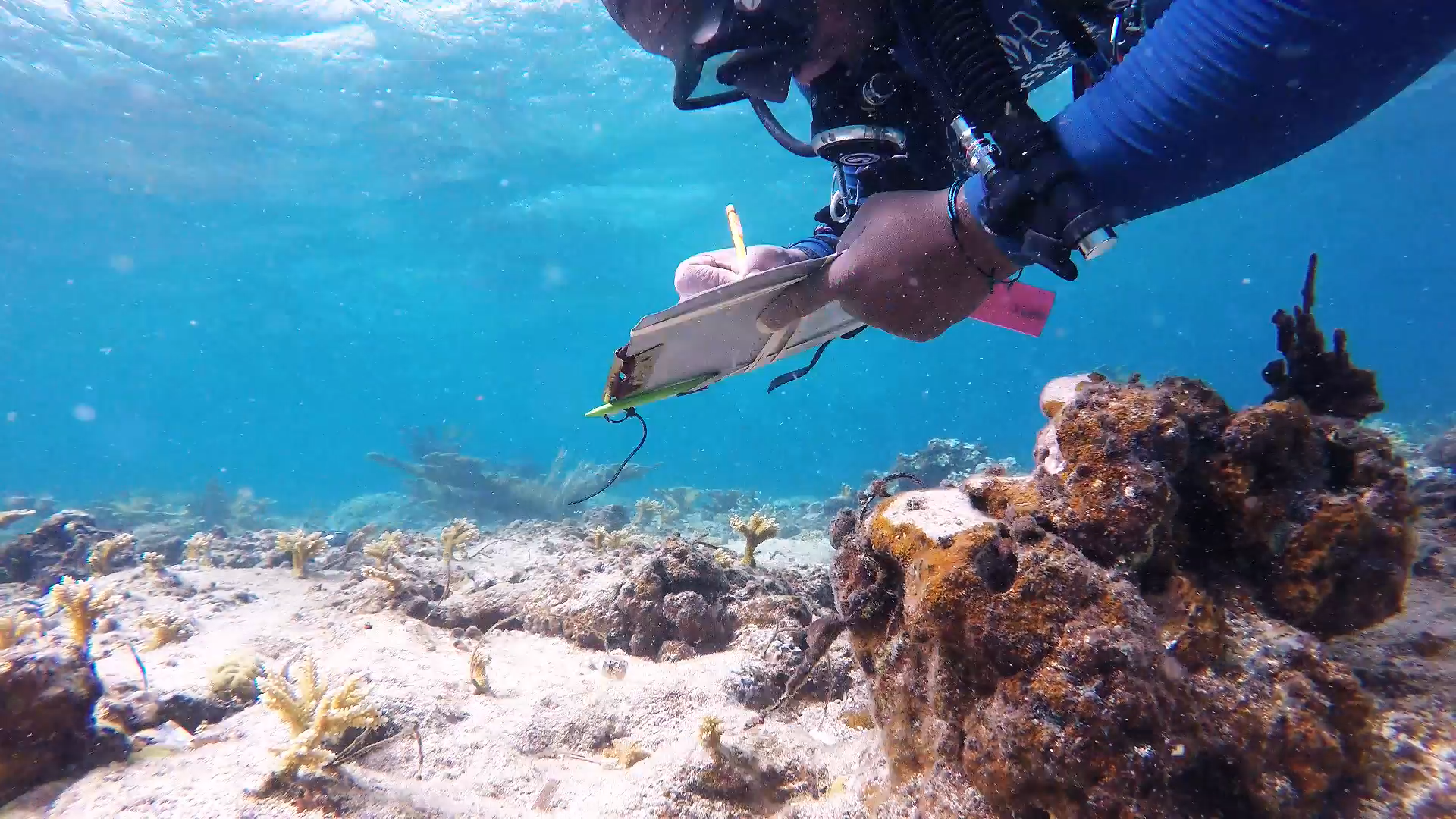
Summary of Theses and Graduates
John Cassell: Seasonal Patterns of Seagrass Species with Relations to Herbivore Preference in a Small Caribbean Bay
Michele Donihe: Assessing Impacts of the Invasive Seagrass, Halophila stipulacea, on Juvenile Southern Stingray (Hypanus americanus) Habitat Preference and Delineation of Diel Movement Patters in Brewers Bay and Perseverance Bay, St. Thomas, USVI.
Mareike Duffing Romero: Spatial-temporal movement patterns of Atlantic tarpon (Megalops atlanticus) and Lane snapper (Lutjanus synagris) in the US Virgin Islands.
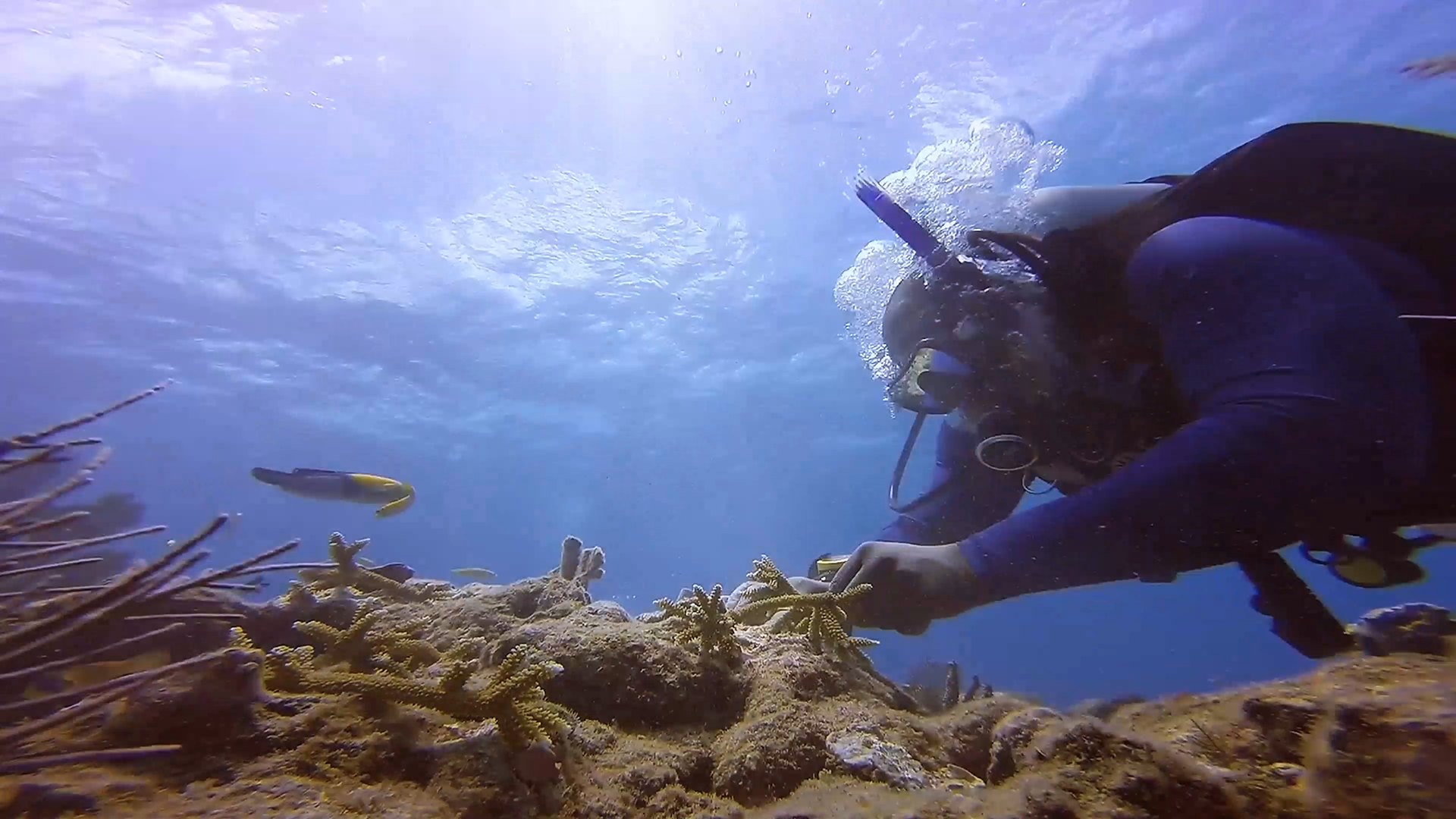
Kari Gerkhe: Home range and habitat use of juvenile green sea turtles (Chelonia mydas) in Brewers Bay, St. Thomas, USVI
Sarah Heidmann: Diel patterns in movements of mutton snapper, Lutjanus analis, within home ranges and on spawning grounds in the US Virgin Islands
Paul Hillbrand: Reconstructing Male Hawksbill (E. imbricata) Genotypes in the Nesting Population of Buck Island Reef National Monument, St. Croix: An Assessment of Multiple Paternity and the Breeding Sex Ratio.
Colin Howe: The acclimatization of the Caribbean fused stag horn coral Acropora prolpifera to non-natal locations.
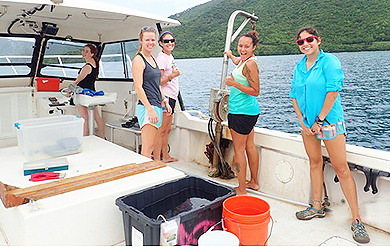
Amelie Jensen: Predictors of and variability in seagrass sediment blue carbon from St. Thomas, US Virgin Islands
Lora Johansen: Factors Influencing Activity Space of Juvenile Hawksbill Sea Turtles
Danielle Lasseigne: Microplastic abundance influenced by anthropogenic activity in St. Thomas, USVI.
Sam Mitchell: The recovery of Seagrass and Chelonia mydas (Green Sea Turtle) after Hurricane Earl in 2010 in Brewers Bay, St. Thomas
Lauren Olinger: An Evaluation Of Local And Community-Scale Multispecies Competition Among Corals, Sponges, And Macroalgae On Reefs In The U.S. Virgin Islands
Tanya Ramseyer: The Effect Of Herbivory And Nutrient Addition On The Dynamics Of The Macroalgae, Dictyota spp. On Caribbean Coral Reefs In St. Thomas, U.S. Virgin Islands
Moriah Sevier: Identifying pathogen sources and vectors: A spatiotemporal ridge-to-reef valuation of a Gorgoinia ventalina aspergillosis epizootic in St. Thomas, USVI
Sara Thomas: Age, Growth and Reproduction of the Queen Triggerfish, Batistes vetula, from the US Virgin Islands
Nikita Thompson: Evaluating the abundance and size distribution of Indo-Pacific lionfish (Pterois spp.) in the US Virgin Islands
Logan Williams: The Impact of Coral Species Diversity on White Plague Disease Transmission

